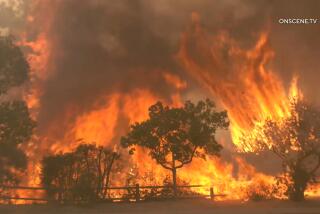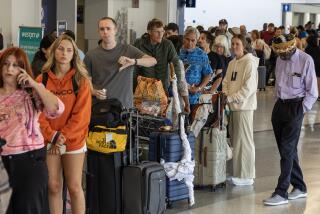Lost Buddies Crowd Ciampa’s Memories
There was the one they called the “All-American Boy,” who flipped his plane while trying to land. Then there was the pilot whose oxygen mask caught on fire, sending flames into his lungs. Another one didn’t come back after a divebombing training run. He had flown, unnoticed by the others, straight into the target, unable to pull up in time.
Many of their names now escape E. Roger Ciampa, 78, but to him they are the legacy of El Toro Marine Corps Air Station.
“It’s not something you get used to--talking to them in the morning and finding out in the afternoon they’re gone,” he says.
Ciampa is keenly aware of the sacrifices made to protect their country by the men and women of El Toro. In the base’s early days, without the benefit of sophisticated flight simulators, the Marine Corps lost as many as one aviator a day to training accidents.
“Seldom would a day go by when you didn’t see a column of black smoke rising out in the distance, causing you to say, ‘I hope that wasn’t one of my friends,’ ” Ciampa says.
Ciampa arrived at El Toro in January 1944 and soon was flying divebombers over the Philippines. He would fly in so close that when he dropped the 2,000-pound bombs, his plane would absorb not only enemy fire but shrapnel from his own shells.
A few years later, he found himself in the Korean War, this time flying Corsairs.
A Marine staff job took him to the East Coast. But when he retired, he returned to Orange County and began a second career as a teacher. Eventually, he became a docent at the base’s aviation museum, energetically telling others of the base’s rich past.
Today, Ciampa is suffering from leukemia, and must use a wheelchair when leaving his San Juan Capistrano home for long periods. But he and his wife of 53 years, Martha, will make their way to El Toro on Friday for the closing ceremonies.
“It’s sort of like your alma mater,” Ciampa says. “It’s like an alma mater where the courses were so tough that many of your friends didn’t pass, and their bones are still spread out there.”
More to Read
Sign up for Essential California
The most important California stories and recommendations in your inbox every morning.
You may occasionally receive promotional content from the Los Angeles Times.






